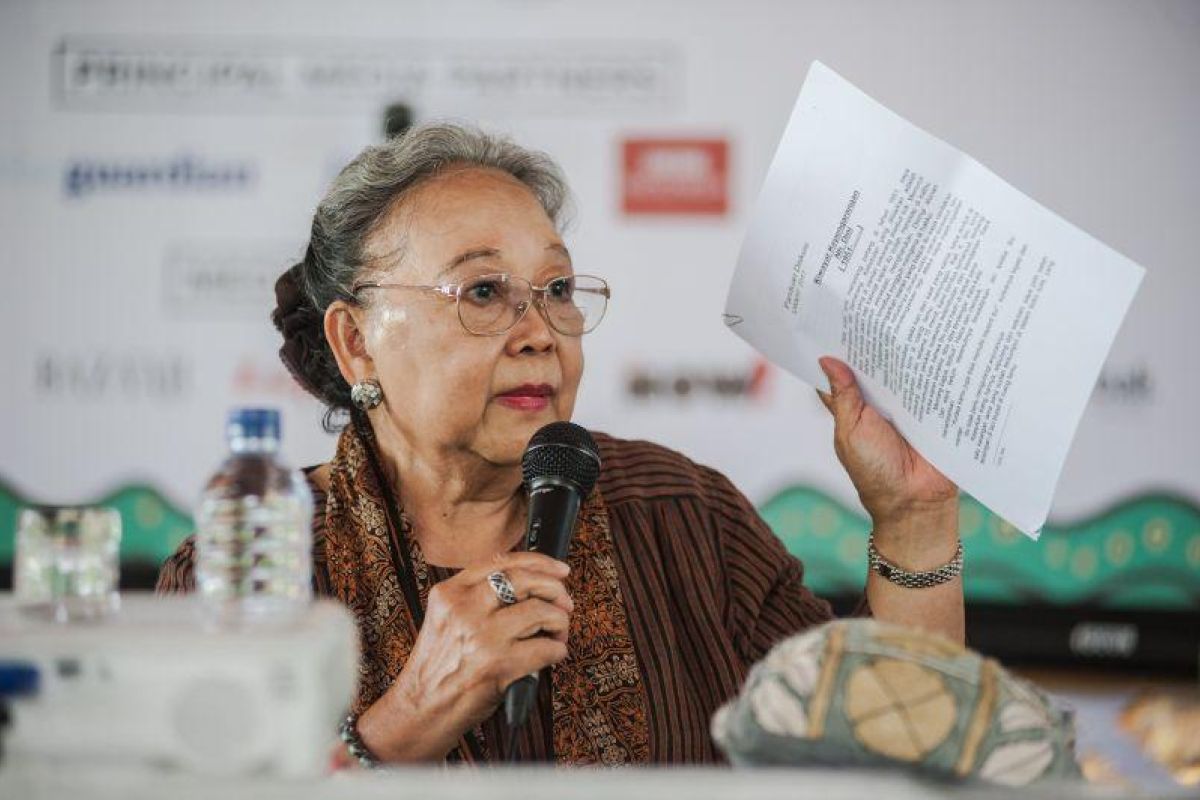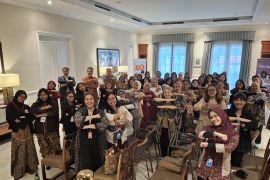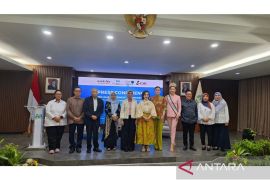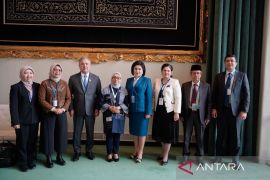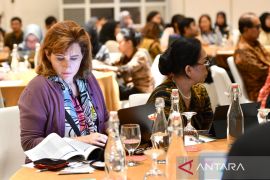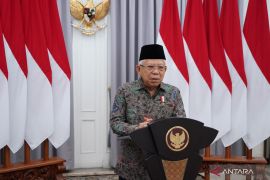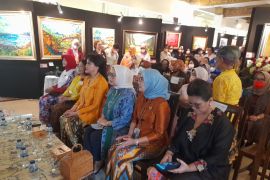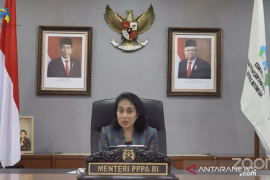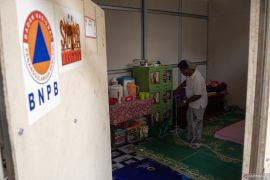This year's International Women's Day is themed #EachforEqual that forges a gender equal world.
As in several parts of the world, women in Indonesia have a long-standing history of struggling for equality and the story continues until this day.
However, for some people, who find it dreary to learn about history, reading some fiction from the country's prominent female writers can be a good option to acknowledge women's role and depiction in Indonesian society, as well as their struggle and empowerment.
Here are ANTARA's choices for female writers whose pieces you can read to spend March 8:
1. N.H. Dini
Indonesian literary legend Nurhayati Sri Hardini Siti Nukatin, renowned as N.H. Dini, is widely known through her novels, such as Pada Sebuah Kapal (Aboard a Ship; 1973), La Barka (1975), and Namaku Hiroko (My Name is Hiroko; 1977).
The hallmark of Dini's novels is the protagonist being a female. During the course of her literary journey, she had received flak for openly speaking about infidelity and sex as something natural. She believes that articulating about problems and the journey of life will bring the readers closer to her work.
As an example, Sri, a character in Aboard a Ship, is said to have a rough-tempered diplomat husband from France. Sri and her husband's marriage turned bland after the birth of their daughter.
Later, Sri found warmth and comfort in Michel, a captain of the ship she knew while sailing from Saigon to Marseille. With the marriage of Michel and his wife, Nicole, running into rough waters, he and Sri then began cheating on their partners.
Sri, a Javanese woman, is described as boldly breaking the rules since she can no longer go through an unhappy marriage.
"Maybe not many books on the theme of infidelity were available in that era, but I saw that in real life, several Javanese women were very resolute in deciding on various aspects of life, daring to determine the direction of their own lives," noted Dini, who spoke at the Ubud Writers and Readers Festival, back in 2017---a year before a car crash claimed her life at the age of 82.
Although almost all her writings oftentimes echo the issue of feminism, Dini only came to the realization that she was classified as a feminist writer during a literary discussion in Australia in 1991.
Dini believes that her works expressed the magnitude of anxiety over the discrimination experienced by women.
Her works mirror the anxiety of a woman and her deep desire to break away from the tradition that views women only as a complement for men.
She believes feminism is just a term that is used, since what she stands for is related to justice for women.
Tradition that is supported by religion is not something she could easily accept. Women endure menstruation, undergo pregnancy, and bear children---however, raising and educating them is a shared responsibility of both men and women.
In line with strong Javanese tradition that necessitates women to only take care of the kitchen and household, Dini also once revealed how she regretted being born a woman when she was a teenager, as she wrote in Pondok Buku Return to Semarang (2011).
2. Okky Madasari
Okky Puspa Madasari, known as Okky Madasari, is an Indonesian novelist, who is recognized for her social criticism, with works highlighting social issues, including injustice and discrimination, and above all, about humanity.
Her first novel Entrok (2010), an epic about life under totalitarian and militarism during Indonesia's New Order era, has been translated into English and was published in July 2013 under the title of “The Years of the Voiceless.”
Entrok tells the story of a young woman, who faces oppression and limitation during the New Order.
Born into a Javanese family, Marni, the protagonist of the novel, is keen to break free from the limitations and inequality she experiences as a woman.
Marni has to challenge the injustice experienced in the form of disparity in the wage system between men and women at that time, only to fulfill her simple wish of buying entrok or bra.
The theme of gender discrimination is lucidly depicted in the novel, wherein Javanese women can only receive food or cassava after doing their job, while men are paid money that they can use to buy anything.
3. Oka Rusmini
Ida Ayu Oka Rusmini, or Oka Rusmini, is a writer whose many works speak of Balinese women and the tradition of the people in that exotic island.
Rusmini was raised under the influence of a strong Balinese culture and grew up in an environment that demanded she conduct herself in an orderly, polite, and civilized manner, and had to be adept at making ceremonial equipment of Hindu Religion and so on---since she is still a descendant of the Brahmin caste.
However, such background seems to inspire her to create literary pieces with the theme of things that were considered phenomenal and often also controversial, as they raised several issues of old-fashioned Balinese customs and traditions that were detrimental to women, especially in the griya environment, home of the Brahmin people.
Rusmini straightforwardly broke the taboo, expounding clearly on sex and erotica.
Erotica-scented metaphors are not something that arouses male lust, but rather the problem of the destruction of the women bodies, oppression, darkness, irrepressible pain, hurt, and revenge.
All these themes are apparent in some of the works, such as the poem excerpt titled Mekatu (1999), in a novel entitled Tarian Bumi (Earth Dance; 2000) that has been published in German with the title Erdentanz (2007) and in a short story collection titled Sagra (2000) as well as poetry anthology titled Pandora (2008) that is a biography of the female body.
Rusmini's works that so violently break the taboo of tradition and vividly discuss the body and erotica could create conflicting ripples among family or friends. People reading her works may feel disturbed, but she let it.
Related News: Impact of female fictional characters as role models
Related News: Capturing the gender inequality through Asian writers' eyes
Related News: Struggle of classic authoresses writing under pseudonyms
Editor: Fardah Assegaf
Copyright © ANTARA 2020
